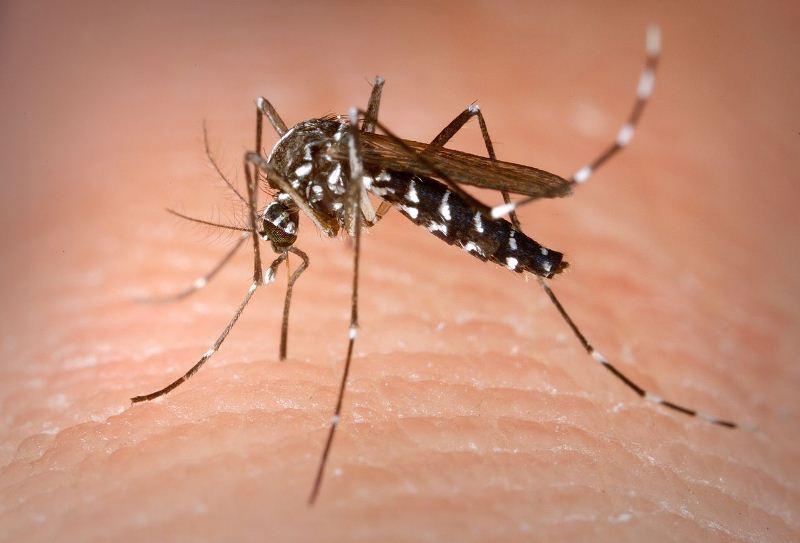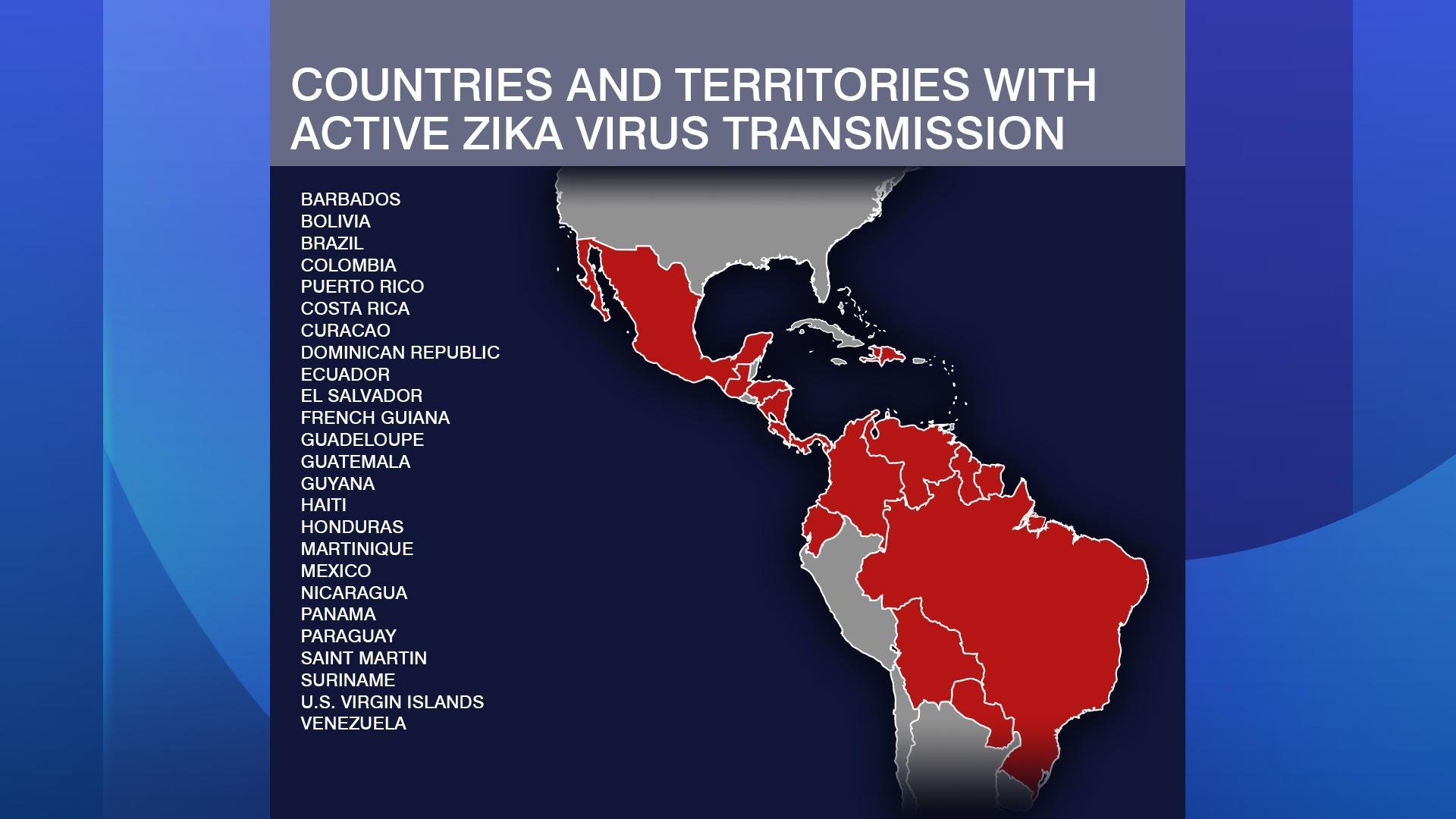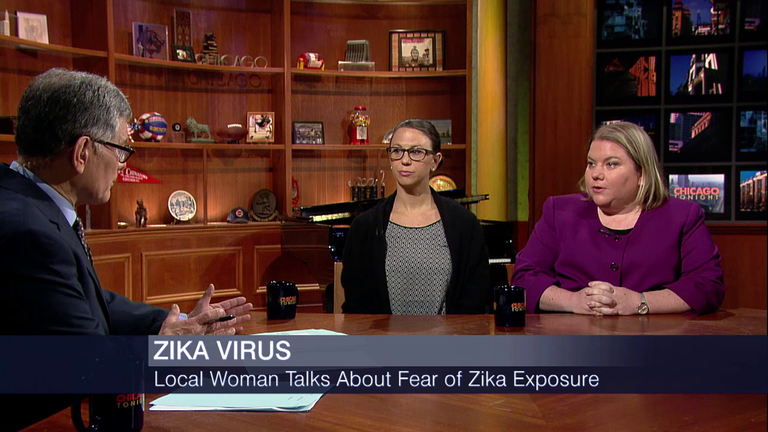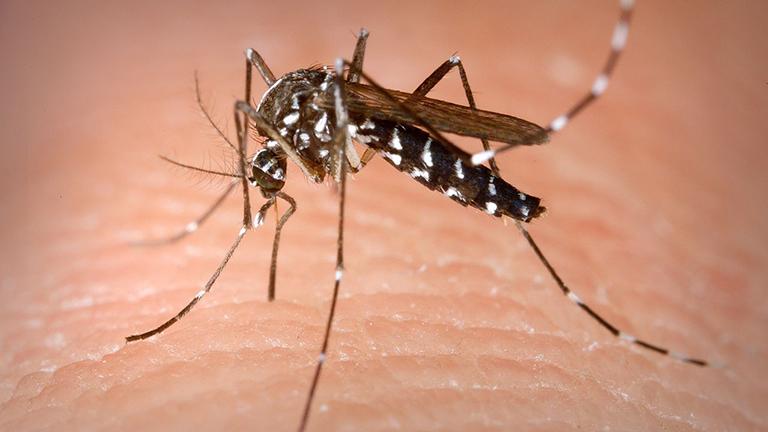On Monday, the World Health Organization declared the Zika virus a global health emergency. And today, the Centers for Disease Control and Prevention confirmed the first case of Zika transmitted by sexual contact–that happened in Texas.
The mosquitoes that transmit the virus are not found in North America. So how concerned should Americans be about contracting Zika? And how much should today's news about sexual transmission increase the concern?
Dr. Allison Arwady, chief medical officer of the Chicago Department of Public Health, joins us to discuss the virus and the risk it poses to Chicago jet-setters. Below, more information about the virus.
What is Zika virus?
It is a mosquito-borne virus that is transmitted via Aedes mosquitoes. Zika virus gets its name from its birthplace, Uganda’s Zika Forest. According to the Centers for Disease Control the virus was first discovered in rhesus monkeys in 1947, and then identified in humans in 1952 in Uganda and the United Republic of Tanzania.
What are the symptoms?
The virus causes mild symptoms including, fever, muscle and joint aches, and pink eye, according to Dr. Jennifer Hannan, an obstetrician-gynecologist at Rush University Medical Center.
“The symptoms last several days and up to a week,” she said. “Twenty percent of people who are infected with the virus get symptoms.”
In addition to mild symptoms, there have been reports linking the Zika virus to microcephaly, a birth defect where a baby’s head is smaller than expected, and Guillain-Barre syndrome, which causes a person’s immune system to attack their nerve cells.
“Normally, it’s very rare,” Hannan said of microcephaly. “Usually, it’s the result of genetic abnormalities, infections in utero.”
Both Hannan and Ephantus Muturi, director of medical entomology at the Illinois Natural History Survey, said more research needs to be done to understand the connection between Zika virus and microcephaly.
“What’s going on in places like Brazil, where they used to have fewer cases of microcephaly, now with the introduction of Zika virus those cases have increased,” said Muturi, whose research includes mosquito-virus interactions. “There’s a correlation between Zika virus and microcephaly, but for now it’s not very clear if the virus is causing this. Further studies are needed.”
“It’s the same thing with cases of nerve damage,” he added. “There’s a correlation between Zika virus and nerve damage. But more studies need to be done to know if it’s more of a correlation or it’s not just a correlation but the cause of these symptoms or disorders.”
How is the virus transmitted?
Zika virus is transmitted to humans through the bite of an infected mosquito.
“It’s very rare, but the Zika virus unlike other mosquito-borne diseases can be transmitted sexually,” Muturi said. “There’s been one case in the United States where that has been reported. It could also in rare cases be passed from mother to baby during pregnancy.”
 Due to occurrences of microcephaly where Zika virus has been transmitted, the CDC has advised pregnant women to avoid traveling to these areas.
Due to occurrences of microcephaly where Zika virus has been transmitted, the CDC has advised pregnant women to avoid traveling to these areas.
What’s known about the connection between Zika virus and pregnant women?
“There’s still a lot unknown about the transmission. As we have seen more cases in Brazil of the Zika virus, there’s been more cases of microcephaly—babies with heads and brains that are underdeveloped,” Hannan said.
“We’re not sure if the impact of the virus is in the first, second or third trimester. We think the increase of the Zika virus and the instance of microcephaly are related, but we don’t know for sure.”
Given the prevalence of microcephaly in areas affected by the Zika virus, the CDC advised pregnant women to avoid traveling to areas where Zika virus has been transmitted.
“Many patients want to take a trip during their pregnancy to celebrate having a baby, or family members are getting married, or they have family reunions or they have families that live outside of the country,” Hannan said. “And they’re calling and asking, 'Is it safe to travel to these areas?' My advice is if you can postpone travel at all, to not go to areas where it’s known there have been Zika infections now with links to microcephaly.”
While a few of Hannan’s patients had traveled to locations where Zika virus had been reported prior to the CDC's travel guidelines, Hannan’s patients are healthy.
“So far we haven’t seen anyone with symptoms of the virus,” she said. “We have had a couple of patients who traveled to those areas a couple of months ago before the CDC recommendations, and all of our pregnant women get an ultrasound at 20 weeks to check to see the size of the baby’s head, and we haven’t seen any babies with small head sizes.”
Late last month, several Latin American countries, including El Salvador and Columbia are advising women to delay pregnancy in some cases up to two years.
“As an obstetrician, we’re in a difficult position because we don’t know enough about the virus … We don’t know if it’s just the Zika virus or if there are other environmental factors that play a part with microcephaly,” Hannan said. “In a country like Brazil the incidence of microcephaly has increased significantly. I think that to be cautious, if you can wait to get pregnant then you should potentially wait until we figure out more of the causes.”
Is there a vaccine or treatment for the virus?
No, but you can take precautions to avoid mosquito bites if traveling to an area where Zika virus has been reported.
“If there’s no way to avoid travel to an area where Zika infected mosquitoes are, take precautions to avoid mosquito bites,” Hannan said. “These mosquitoes bite during the daytime and can be found indoors and outdoors. Try to be in air conditioning. Be somewhere where there are screens. Wear long sleeve clothing and pants. Wear insect repellant.”
 Aedes albopictus (Asian tiger mosquito), which can transmit the Zika virus, is found in Illinois.
Aedes albopictus (Asian tiger mosquito), which can transmit the Zika virus, is found in Illinois.
Are Aedes mosquitoes found in Illinois?
Yes, the Aedes albopictus (Asian tiger mosquito) is found here.
But Aedes aegypti, the type of mosquito making headlines about transmitting Zika virus, can’t survive in Illinois.
“Aedes aegypti can’t deal with the cold weather,” Muturi said. “Someone who traveled there could bring it here. But it would never be able to establish a population here because it gets too cold.”
While Muturi says Illinois is home to Aedes albopictus, it’s unlikely Zika virus will take over the state.
“They’re able to establish a population here, but that doesn’t mean the Zika virus is here,” he said. “Transmission doesn’t necessarily depend on the presence of mosquitoes. Humans have to be infected. As long as there are no infected humans then no transmission can take place.”
In other words: In order for the Zika virus to spread to the local Aedes albopictus population, someone would have to travel to a country where the Zika virus has been reported, be bit by an infected mosquito, return back to Illinois and then be bit by a local mosquito that can then carry the virus.
“Initially the mosquitoes don’t have the disease at all,” Muturi said. “If someone goes to South America and comes back carrying the disease, mosquitoes could get it from there and transmission could be possible.”





